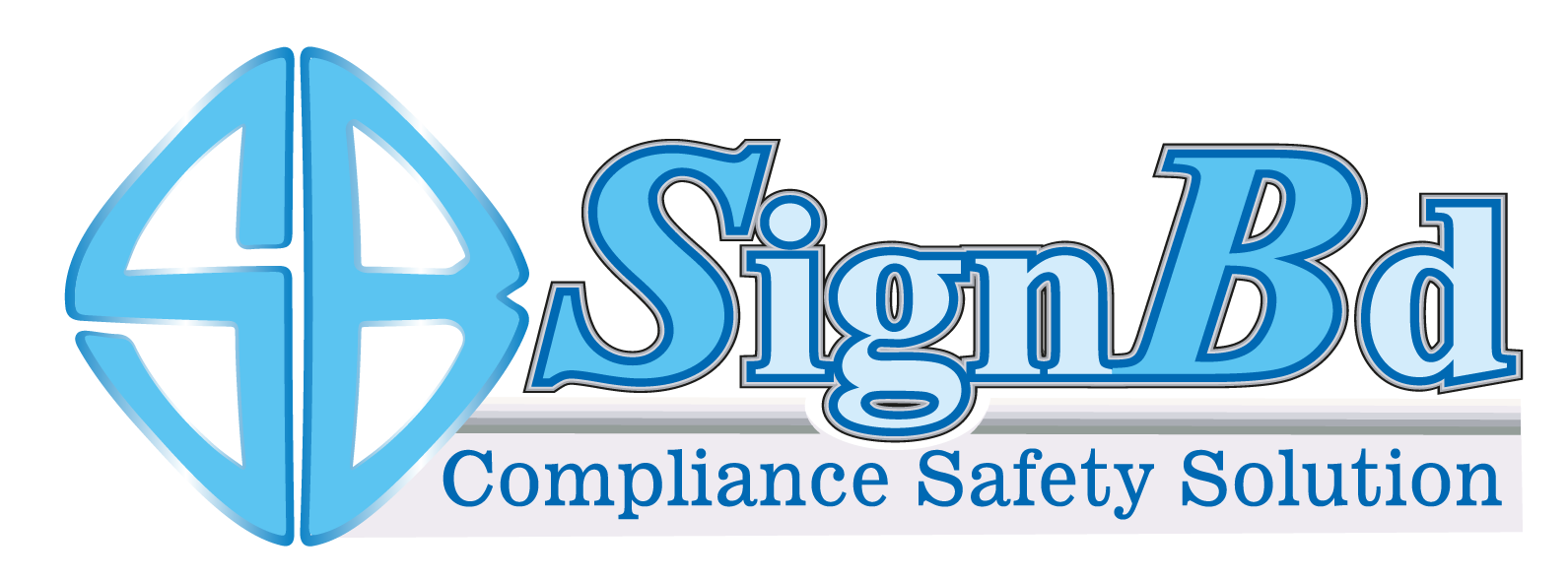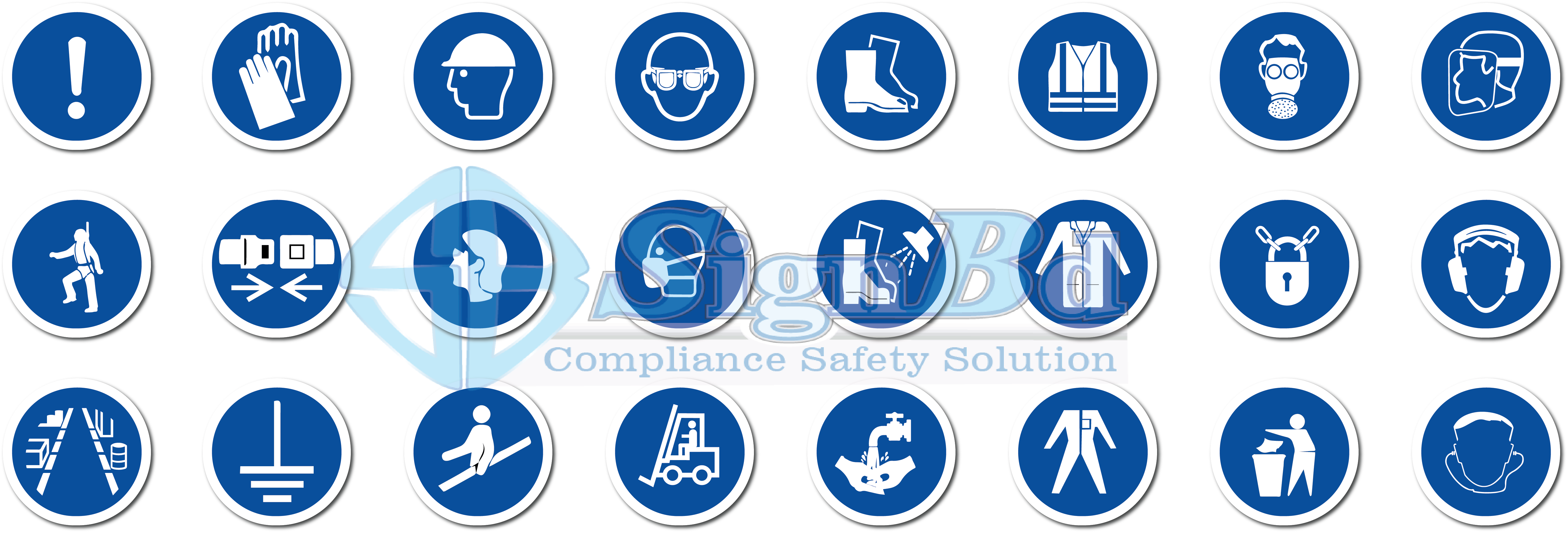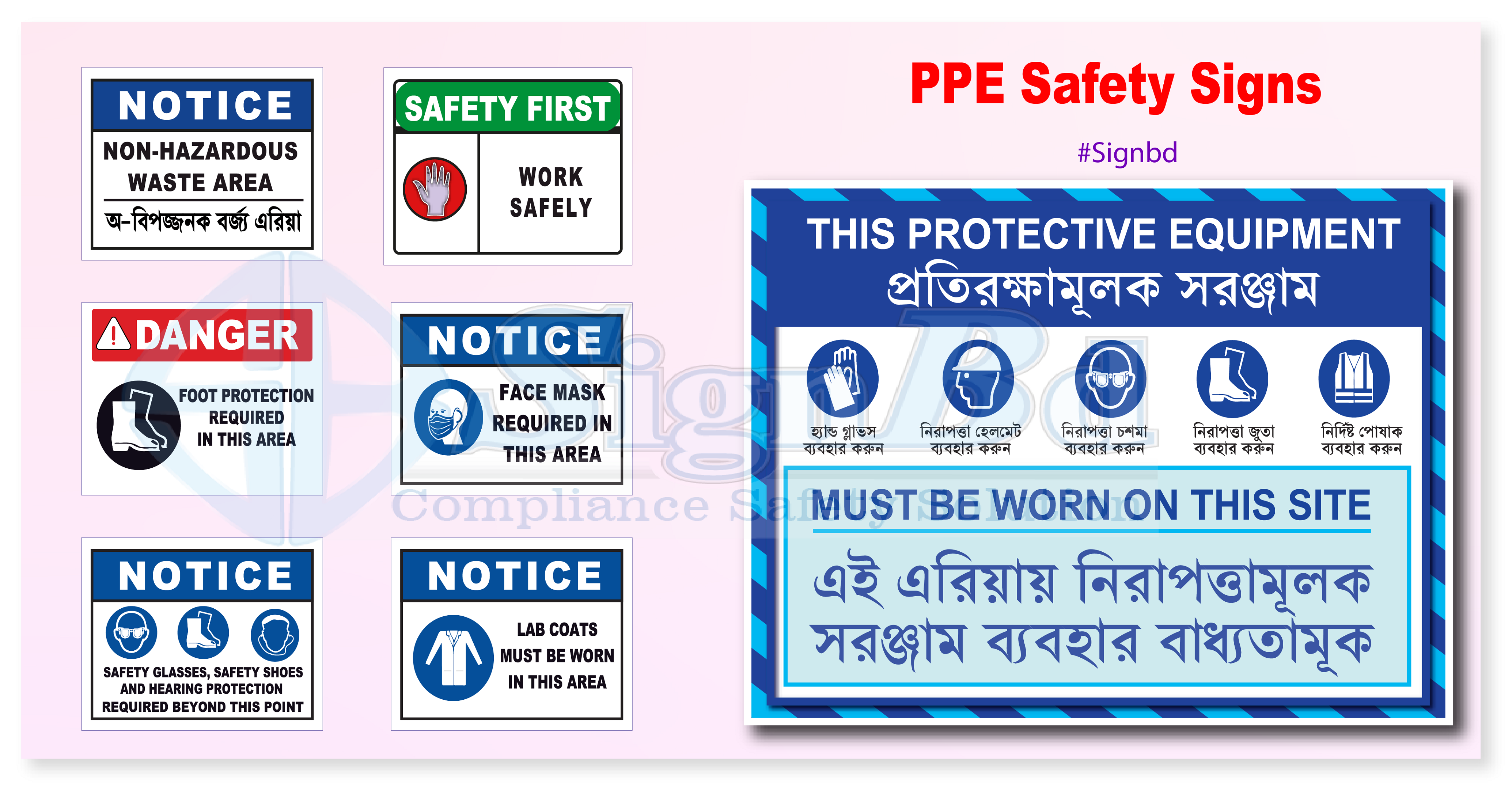+8801600371198
sign_bd@yahoo.com
Account Login
Home>>Compliance Safety Signs>>Textile Safety Signs
Textile Safety Signs
Ensuring Safety in the Textile Industry: The Crucial Role of Safety Signs
Importance of Safety Signs in the Textile Industry
This article explores the essential role of safety signs in ensuring the well-being of textile workers and maintaining a secure working environment.
Health and Fire Safety Risks in the Textile Industry
Health and fire safety risks are present across various sections of the textile industry, including the ring section, simplex section, winding section, comber section, carding section, blow room section, drawing section, and cotton godown section. These safety signs serve as vital visual guidelines, ensuring the protection of everyone involved in the production process.
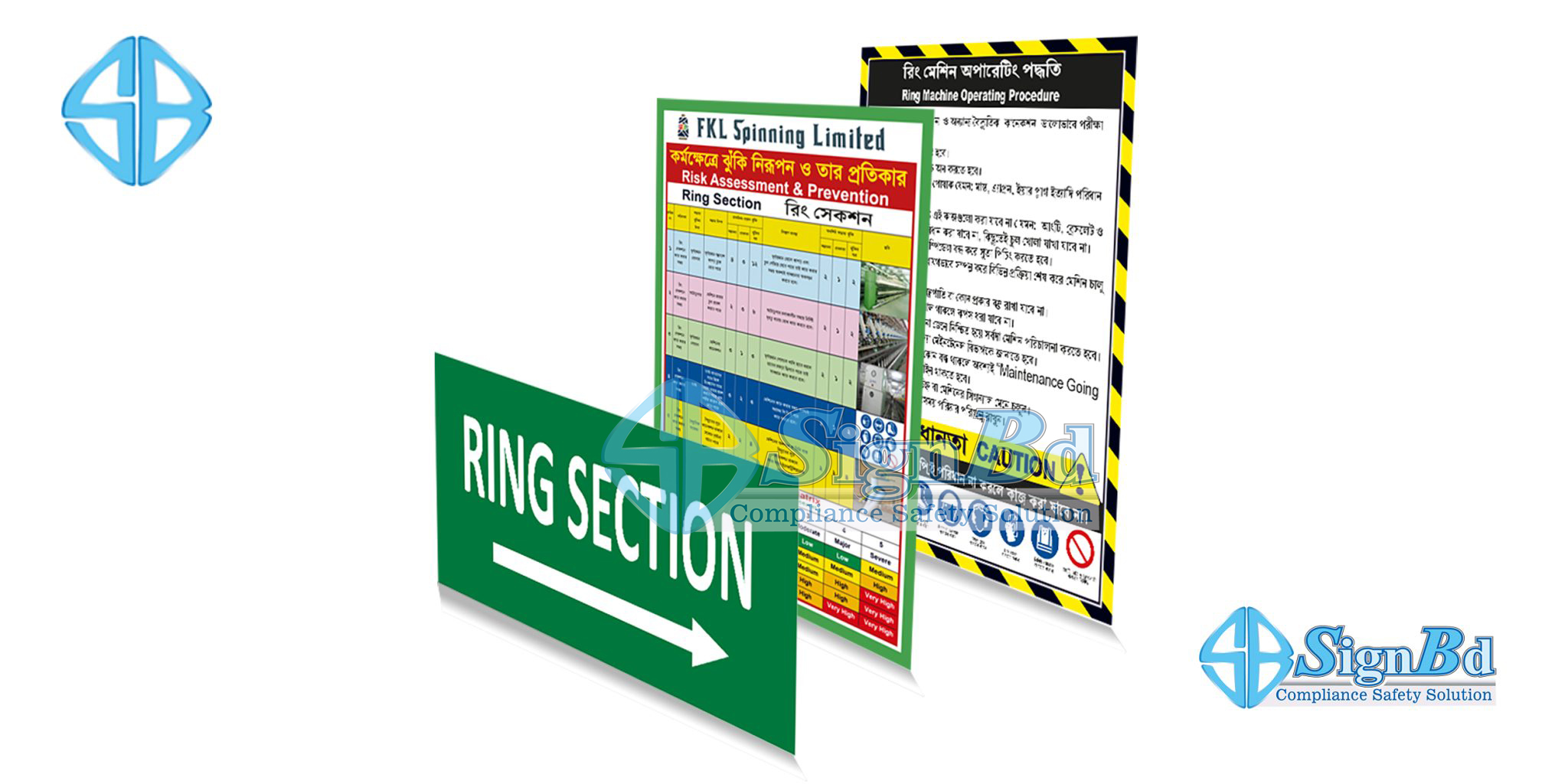
Significance of Textile Safety Signs
Workplace Safety, Risk Assessment, and Health Protection
Safety signs in the textile industry are not just symbols but crucial tools for risk assessment and health protection. Workers face numerous risks daily, and these signs act as silent yet powerful guardians.
Risk Assessment in Different Textile Sectors
Ring Section Risk Assessment: The ring section involves complex machinery where cotton is spun into yarn. Precision and speed are crucial here. Safety signs instruct workers on safe practices, such as proper clothing, accident prevention, mask usage, ear protection, and fire emergency procedures.
Simplex Section Risk
Assessment: The simplex section deals with yarn twisting, requiring smooth machine operation. Safety signs emphasize machine maintenance and safe operating procedures to prevent worker injuries.
Winding Section Risk
Assessment: In this section, the final yarn takes shape. Safety signs remind workers about proper packaging procedures and safe yarn handling to prevent injuries.
Comber Section Risk
Assessment: This section prepares cotton fibers for further processing. Safety signs guide workers on the correct use of comber machines, reducing accident risks.
Carding Section Risk
Assessment: Carding straightens tangled cotton fibers. Safety signs instruct workers on using the carding machine safely.
Blow Room Section Risk
Assessment: This section involves cleaning and preparing raw cotton for processing. Safety signs educate workers on proper cotton handling to prevent respiratory issues.
Drawing Section Risk
Assessment: Drawing aligns cotton fibers before spinning. Safety signs highlight the importance of equipment maintenance and protective gear.
Cotton Godown Section Risk
Assessment: Cotton godowns store raw materials. Safety signs stress proper stacking and handling to prevent accidents and fires.
Ensuring Fire Safety in Textile Production
Fire Safety and Prevention System in the Textile Industry
Fire safety is a critical aspect of textile production. Textile mills handle combustible materials, making fire safety paramount.
Importance of Fire Safety Signs: Fire safety signs in the textile industry act as the first line of defense against potential disasters. They communicate emergency fire safety plans, fire extinguisher locations, and assembly points in case of a fire. These signs ensure workers can respond quickly and efficiently to fire emergencies, ultimately saving lives and property.
Conclusion: Protecting the Textile Industry
Textile safety signs are more than just markers on the walls of textile mills; they symbolize safety and well-being.
The textile industry is a vibrant and essential sector, providing fabrics that dress, comfort, and inspire the world. However, the nature of textile production entails risks that cannot be underestimated.
From risk assessment in every department to fire safety measures, these signs are a testament to the textile industry’s commitment to its most valuable asset – its workforce. As long as cotton is transformed into yarn, textile safety signs will be the guiding light that keeps the industry safe and prosperous. Remember, safety is not just a sign; it is a way of life in the textile industry.
We provide all types of safety signs and fire safety evacuation floor plans for any textile industry, manufactured to international standards.

OSHA Safety Signs
OSHA Safety Signs: A Comprehensive Guide to Ensuring Workplace Safety
Understanding the critical role of OSHA safety signs in the workplace is essential. These signs fall into four main categories: Danger, Warning, Caution, and Notification. Each serves a unique purpose in addressing varying levels of risk. Why are OSHA standards vital for safeguarding employees and workers?
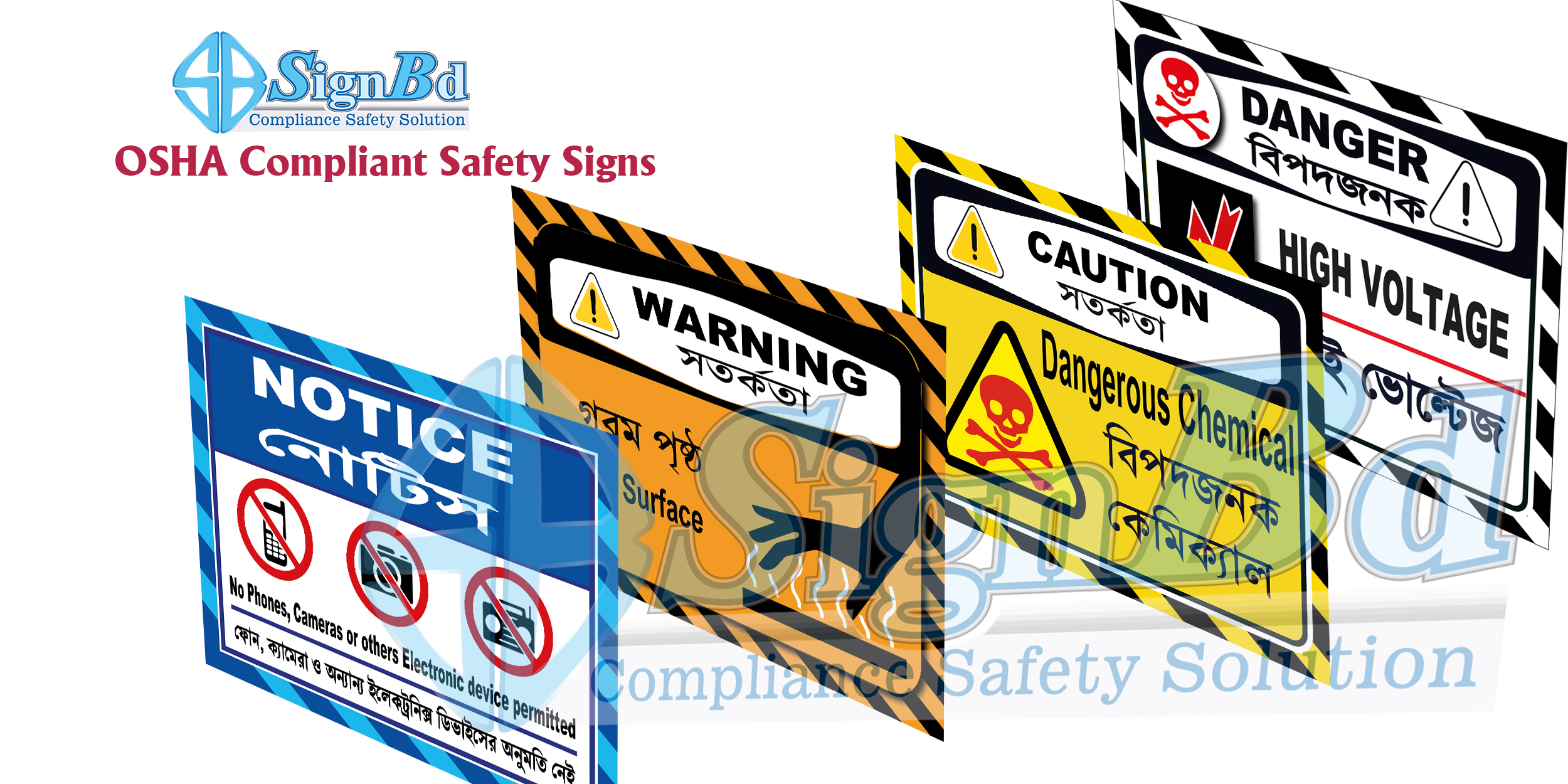

ANSI Safety Sign
Understanding and Implementing ANSI Safety Sign Standards
The American National Standards Institute (ANSI) sets the benchmark for safety and accident prevention through comprehensive guidelines, particularly ANSI Z535.4-2011 (R2017). These guidelines are crucial for creating effective safety signs and labels across various industries. Whether it’s a label or a sign, the primary goal is to convey critical safety information to comply with ANSI standards. Let’s delve into the importance of adhering to ANSI safety sign standards.
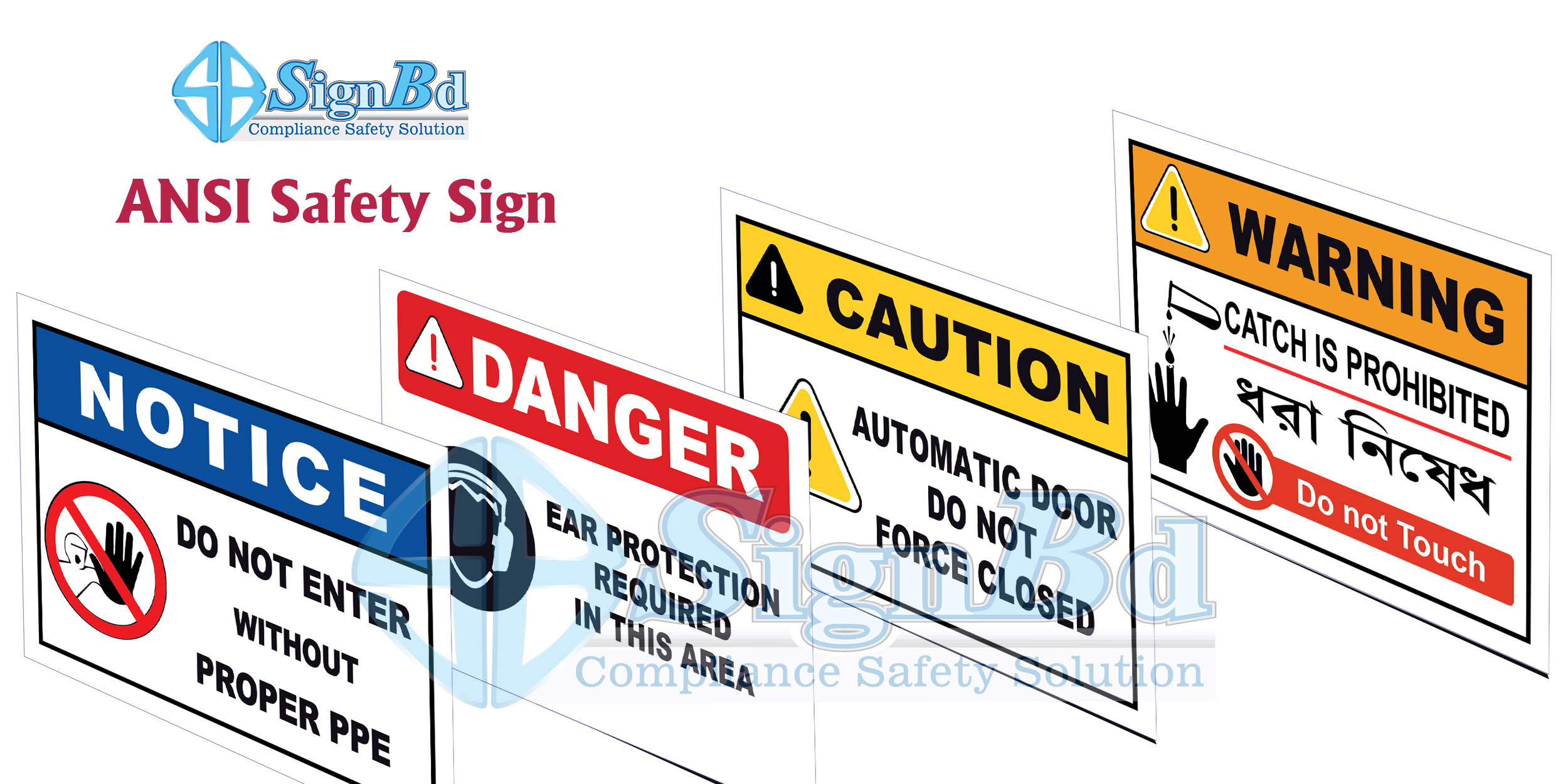

ISO Safety Signs
Enhancing Workplace Safety with ISO Safety Signs
In the modern workplace, safety is of utmost importance. One of the key elements in maintaining a safe environment is the use of ISO safety signs. These signs, governed by the ISO 7010 standard, are crucial for effective safety communication. They play a significant role in preventing accidents, ensuring fire safety, communicating health hazards, and facilitating emergency evacuations.

PPE Safety Sign
The Importance of PPE Safety Signs in the Workplace
What is PPE?
Personal Protective Equipment (PPE) refers to specialized clothing and equipment designed to shield the wearer from injury or infection. This includes items like protective clothing, helmets, gloves, goggles, and boots. PPE is crucial in various workplaces to protect workers from potential hazards such as chemical, radiological, physical, electrical, and mechanical dangers. Ensuring the use of PPE significantly reduces the risk of serious injuries and illnesses in the workplace.

The Essential Role of Caution Signs in Workplace Safety
Ensuring Safety Across Various Industries
In the world of industrial and manufacturing organizations, safety is paramount. Caution signs play an essential role in ensuring the well-being of employees and workers. This article delves into the significance of warning signs across various industries and how they contribute to workplace safety.
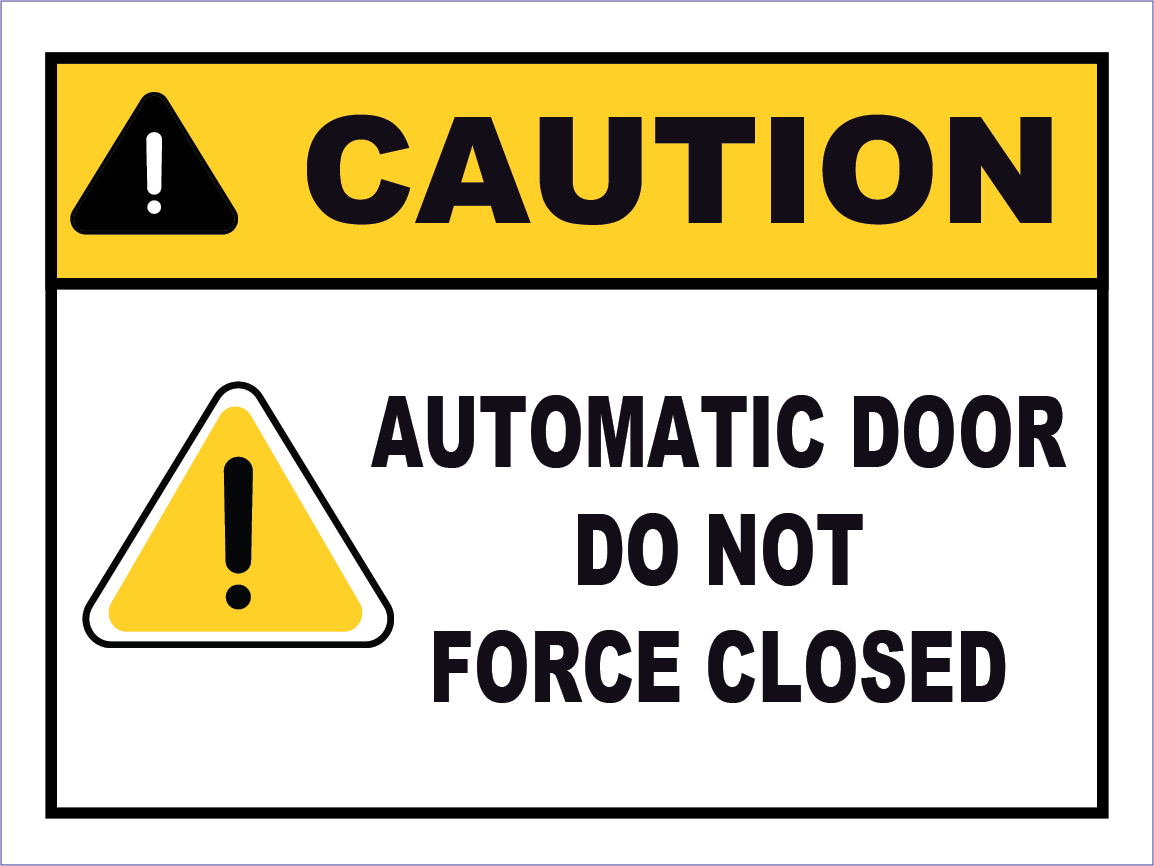
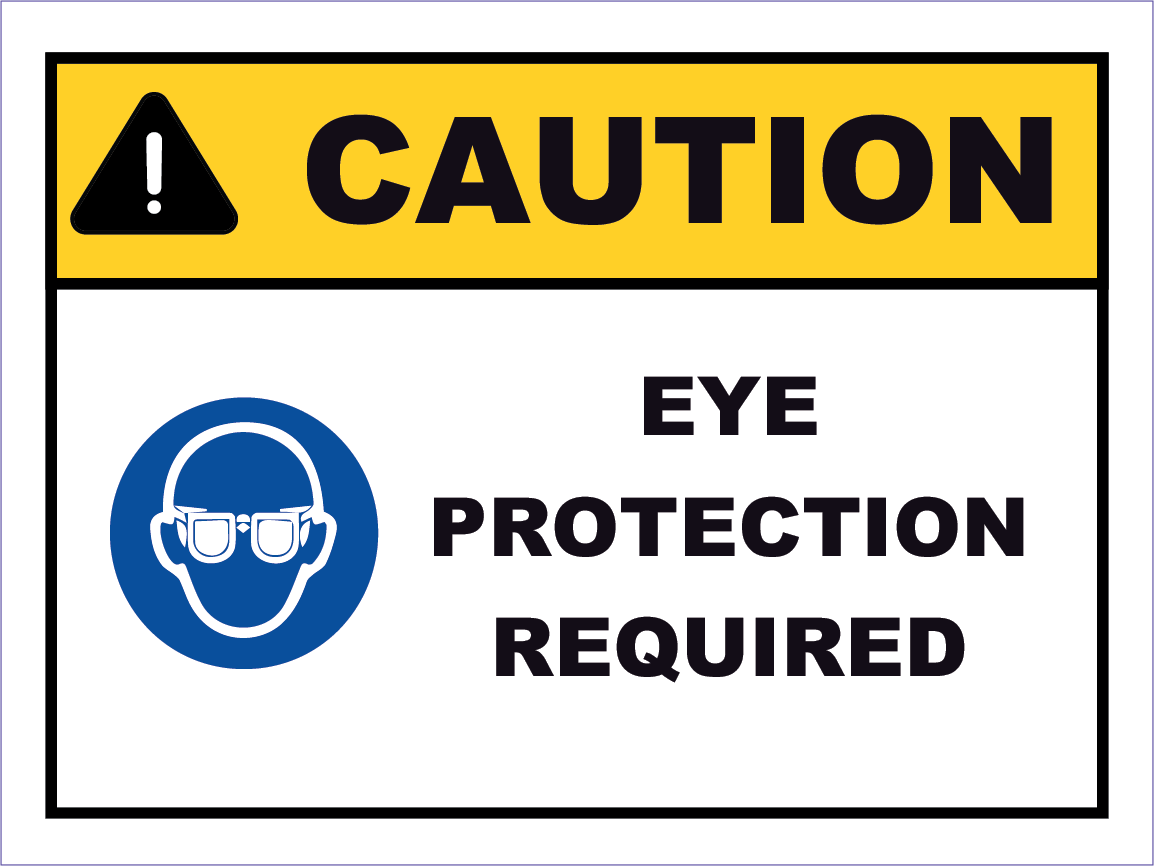
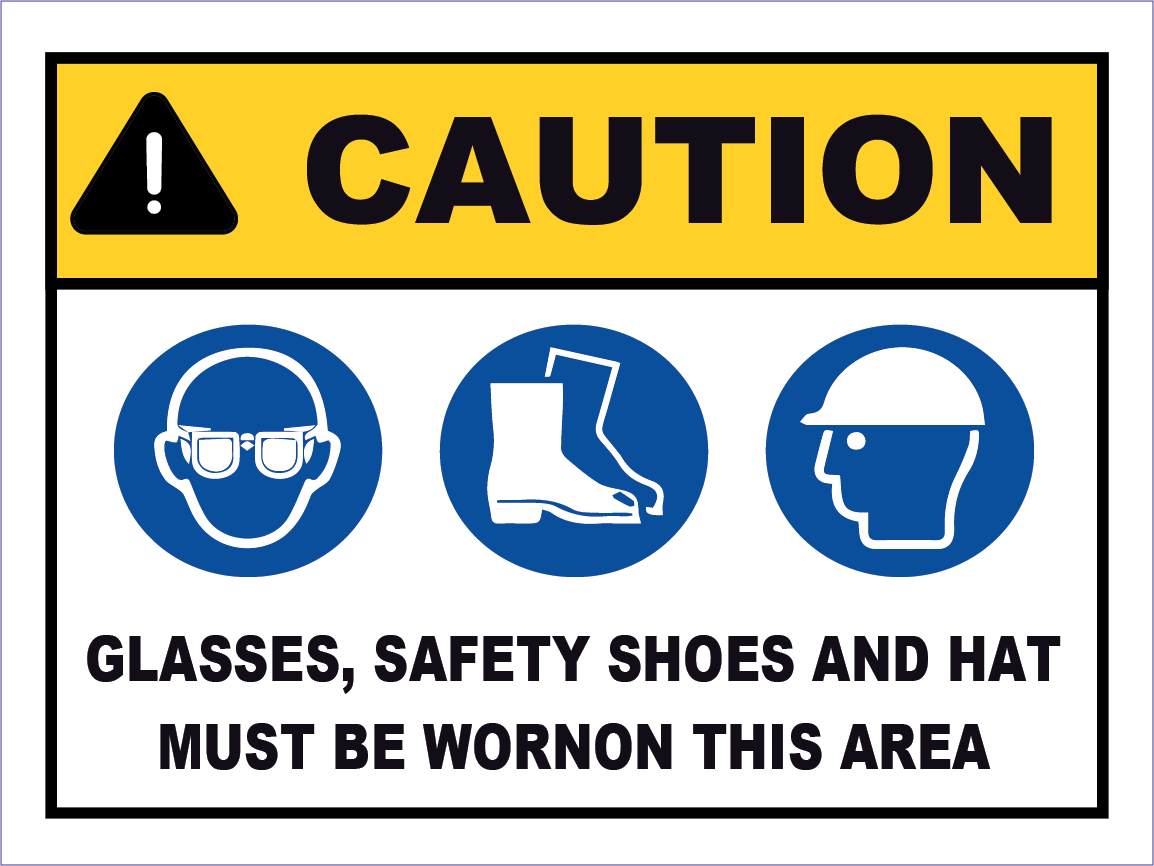
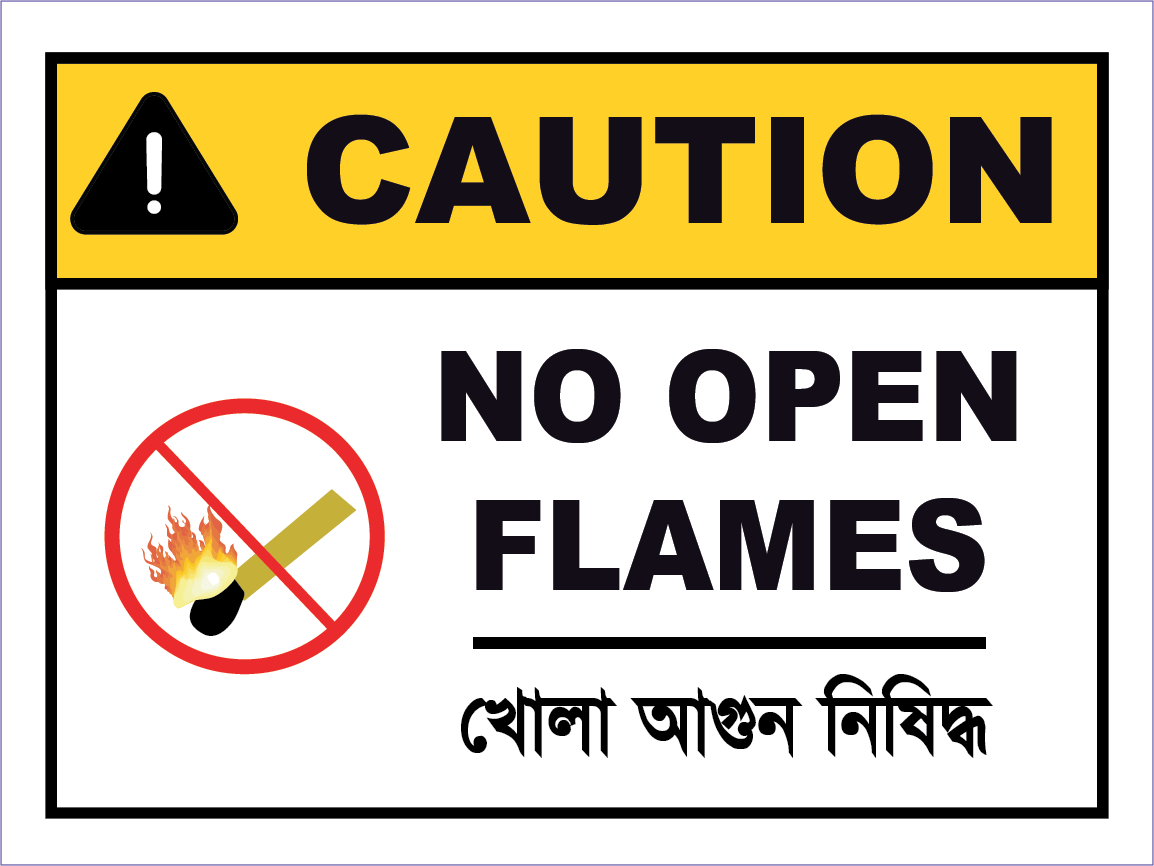
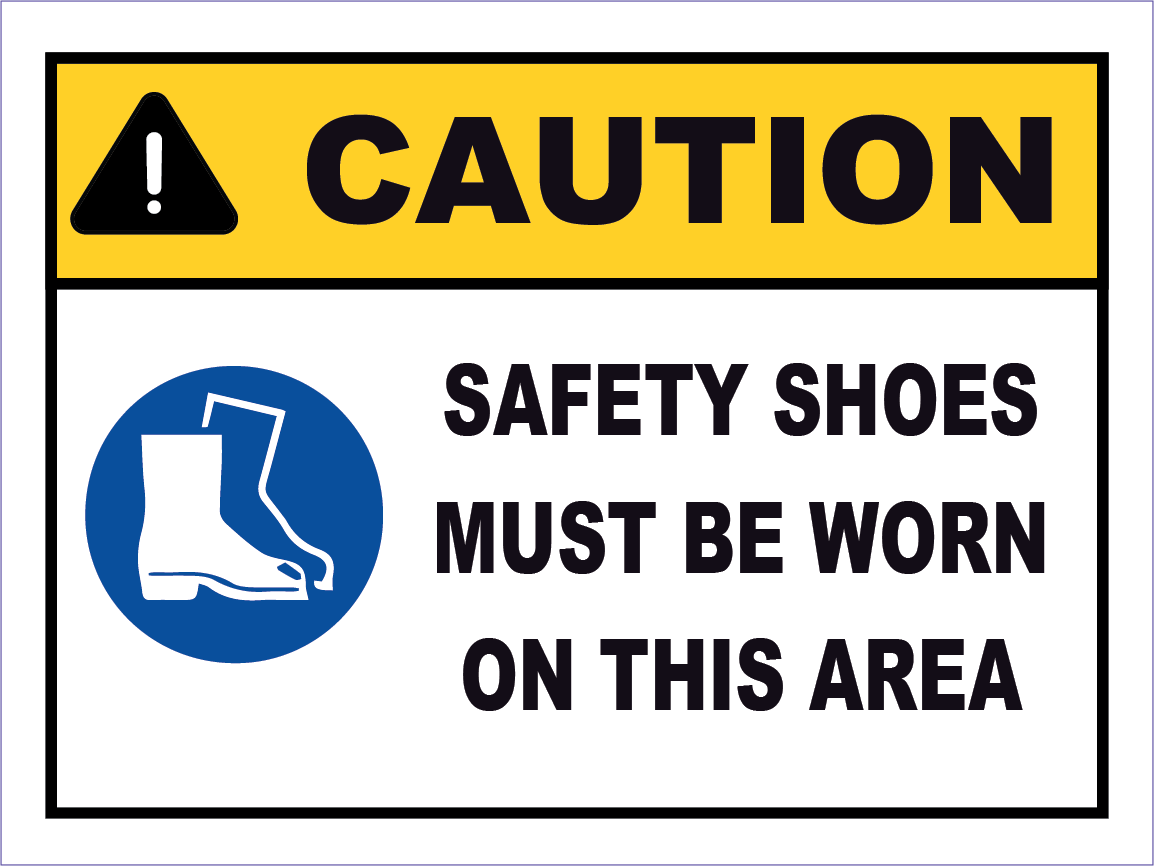

Bilingual Safety Signs
Danger Signs, Warning Signs, Mandatory Signs, Caution Signs, Prohibition Signs
Enhancing Workplace Safety with Bilingual Safety Signs
Introduction: The Importance of Bilingual Safety Signs
Effective communication in the workplace is crucial for ensuring safety, especially in multilingual environments. Bilingual safety signs are essential tools that help convey important safety information to all employees, regardless of their native language. This article delves into the significance of bilingual safety signs, including danger signs, warning signs, mandatory signs, and caution signs, across various industries.
Why Bilingual Safety Signs Matter
Bilingual safety signs act as universal communicators, ensuring that crucial safety information is accessible to everyone. Industries such as garment factories, dyeing and washing facilities, pharmaceutical companies, and tanneries rely heavily on these signs to maintain a safe working environment. These signs are not just visual aids; they are integral components of workplace safety.


Your Custom Evacuation Floor Plan Design
The Essential Guide to Fire Safety Evacuation Floor Plans
Ensuring the safety of employees in factories, industries, and companies worldwide hinges on having a meticulously designed fire safety evacuation floor plan. This article delves into the critical nature of these plans, particularly in compliance with US and European standards, and emphasizes their role in safeguarding worker and personnel safety.
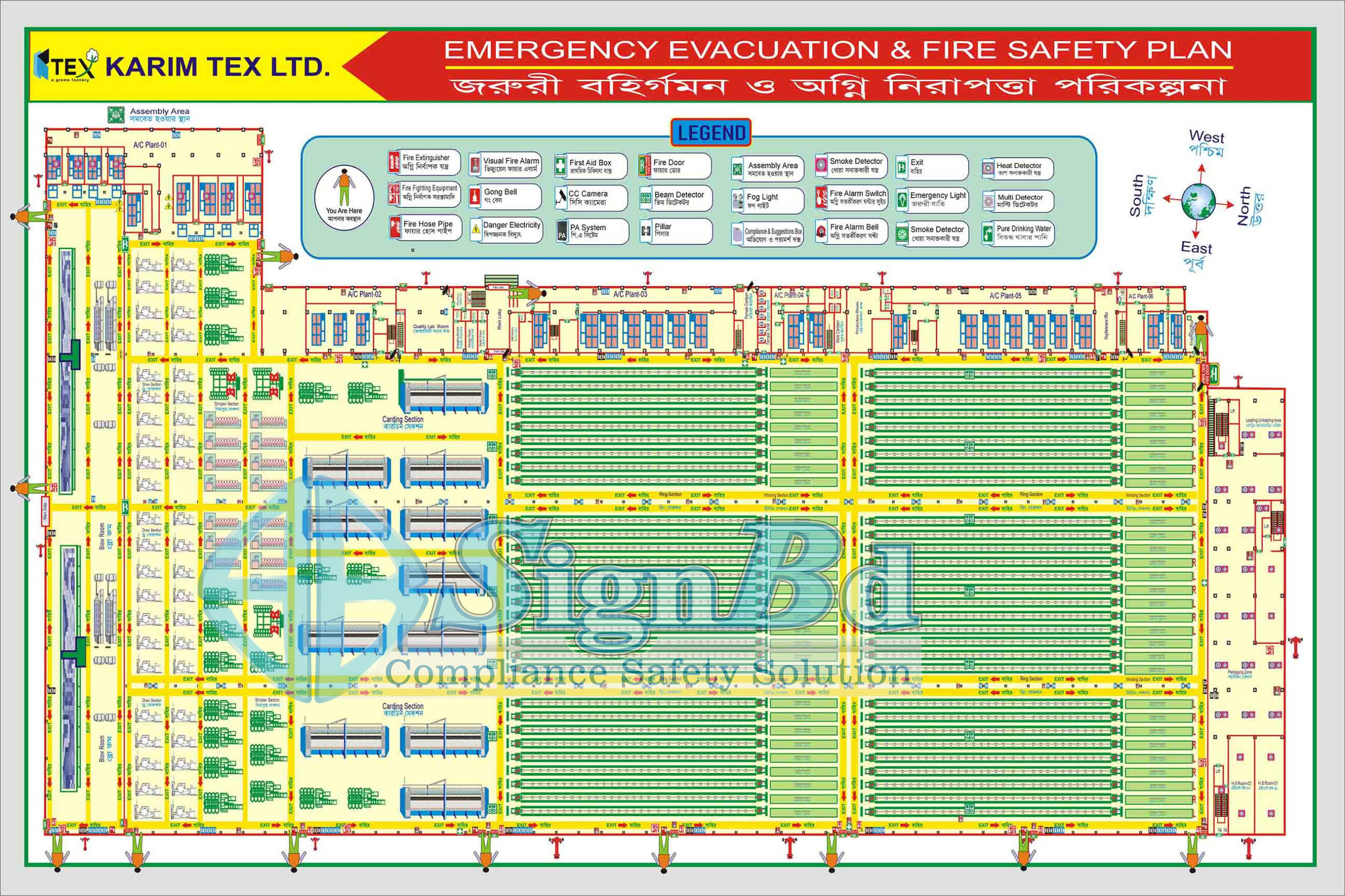
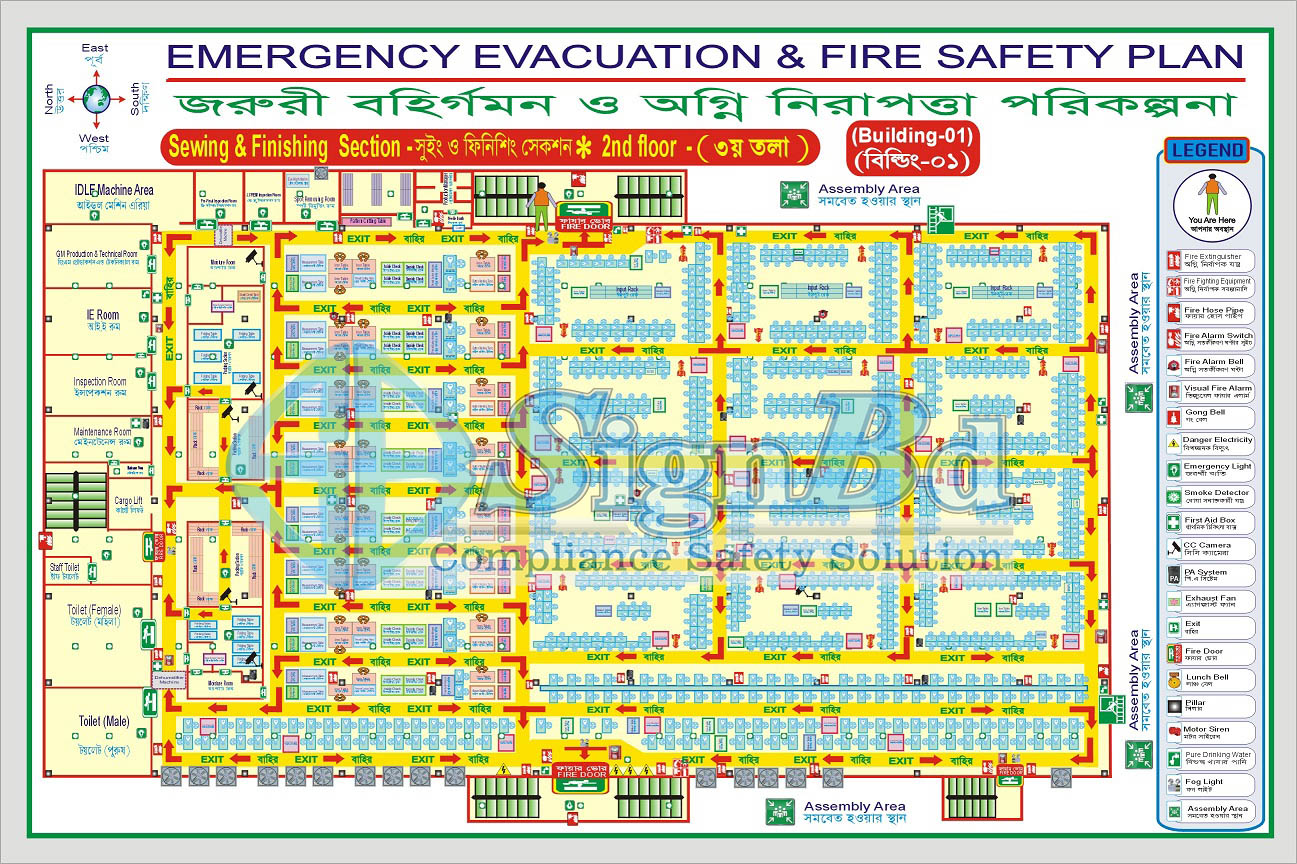
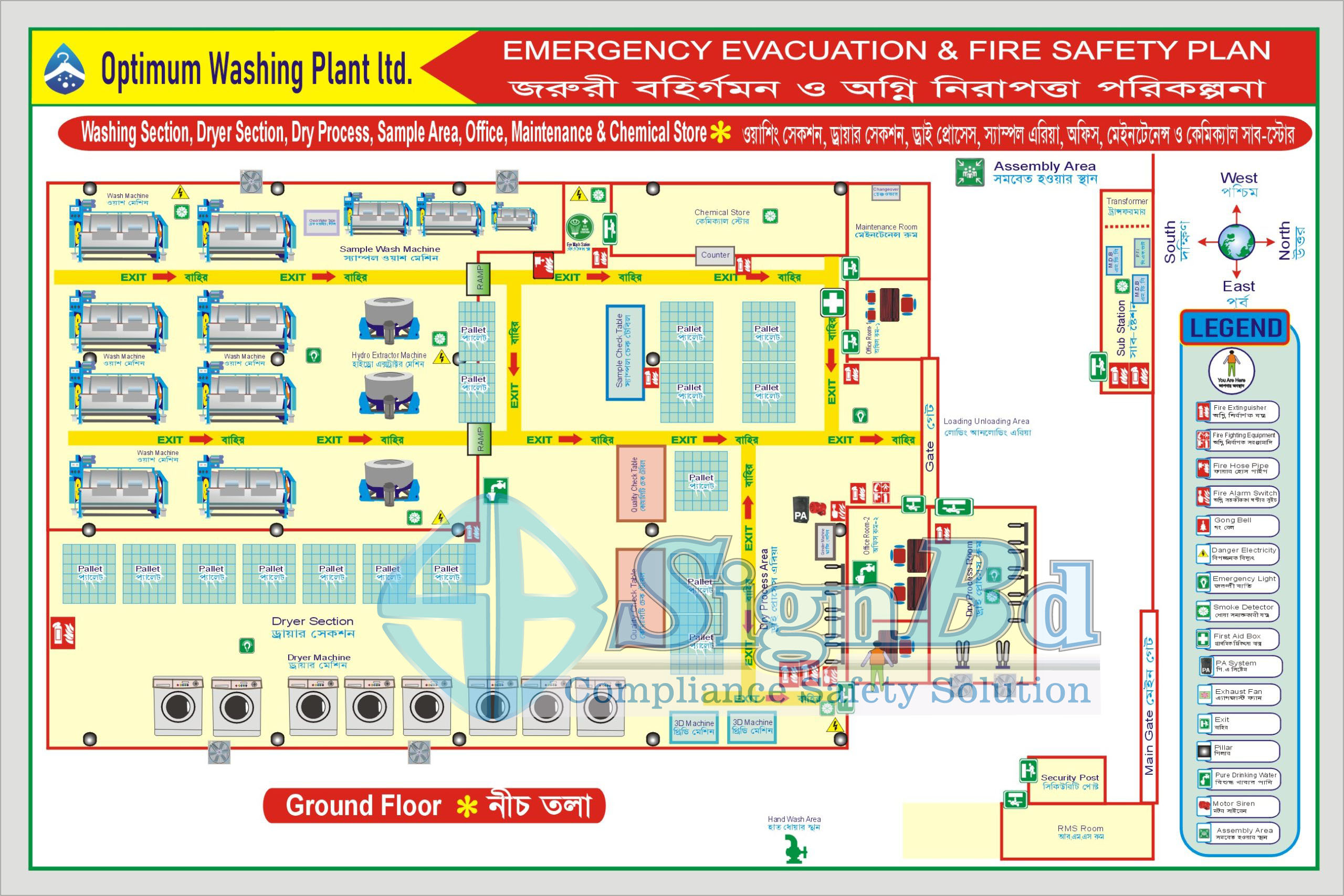
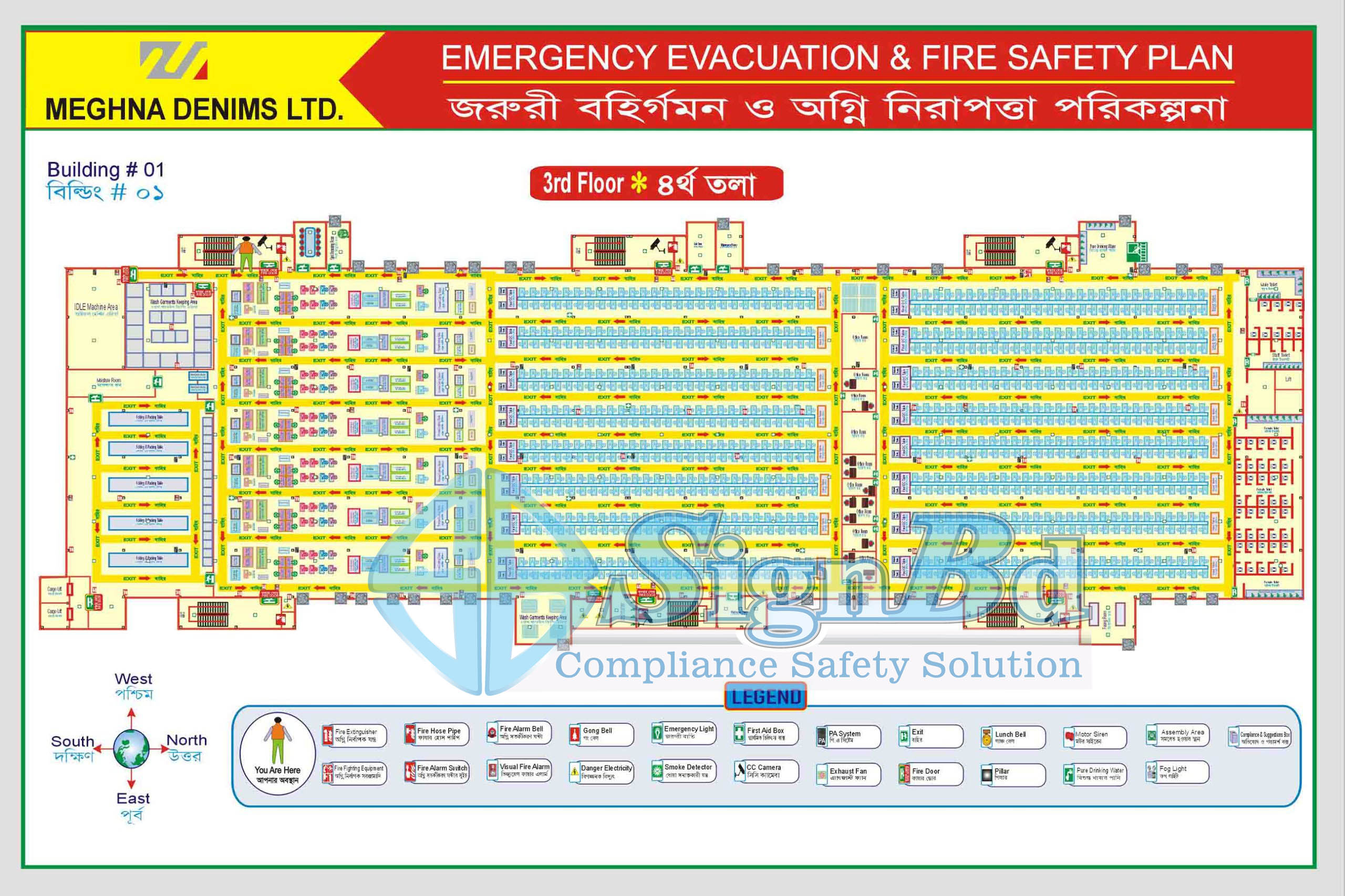
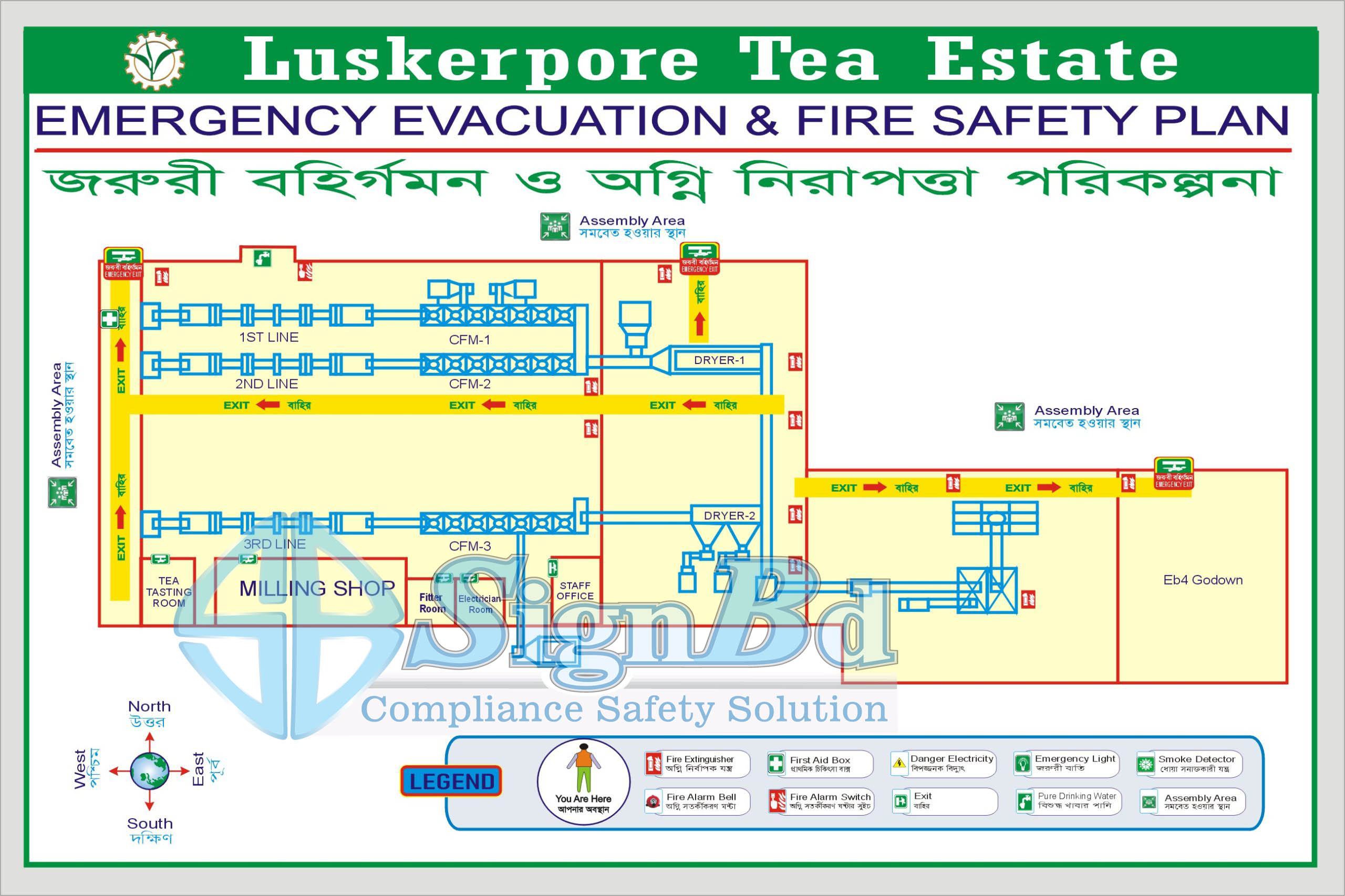
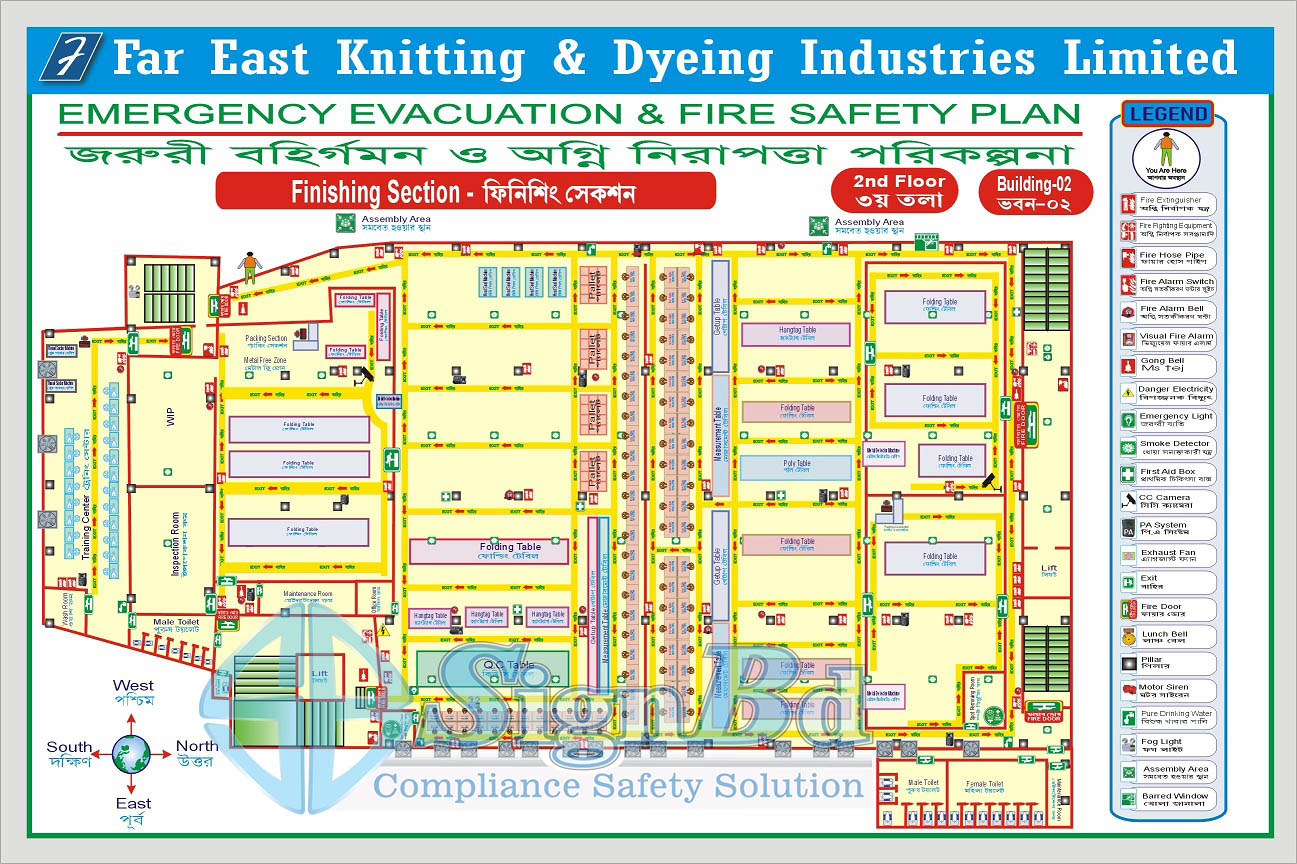
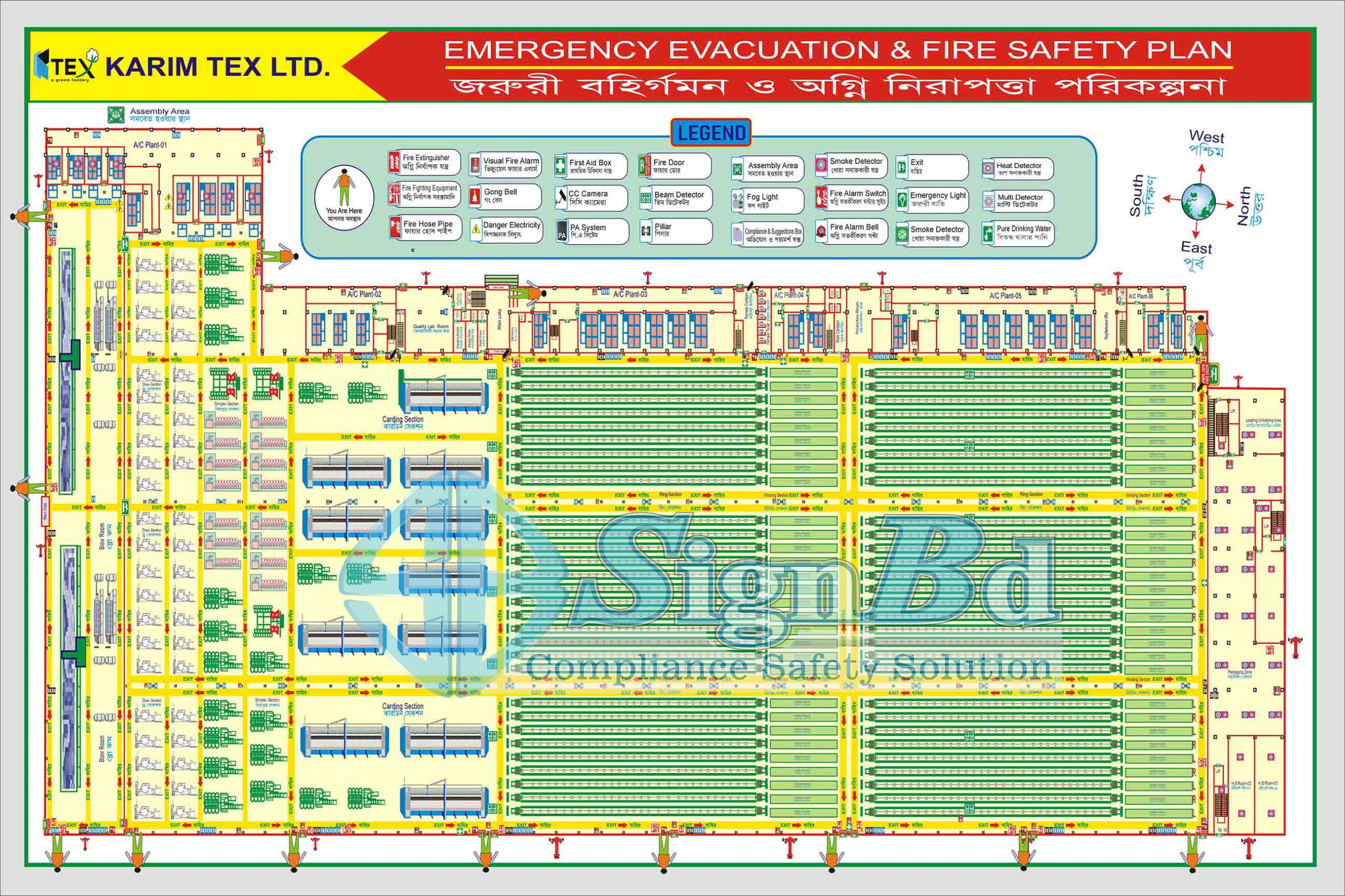
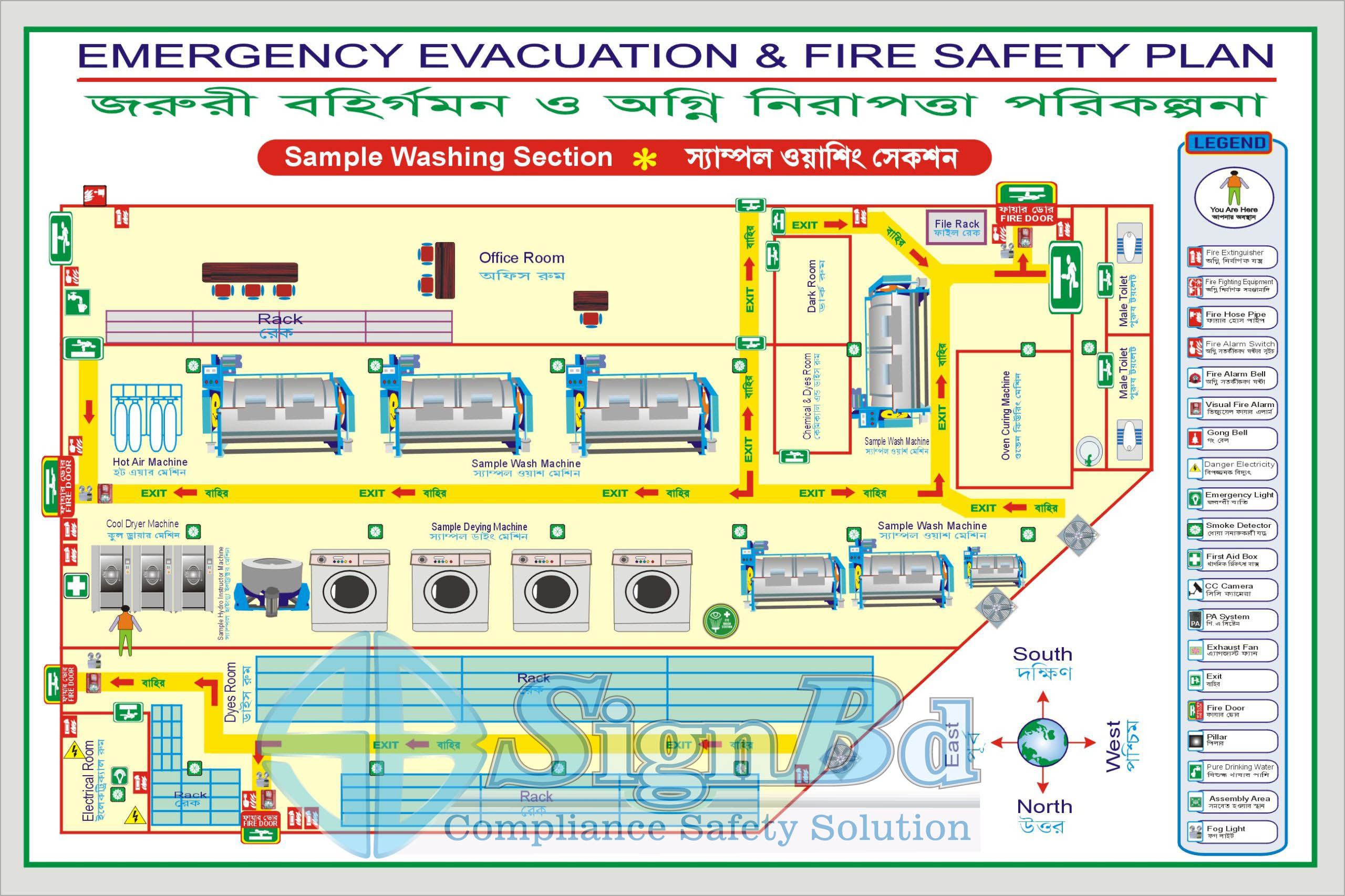
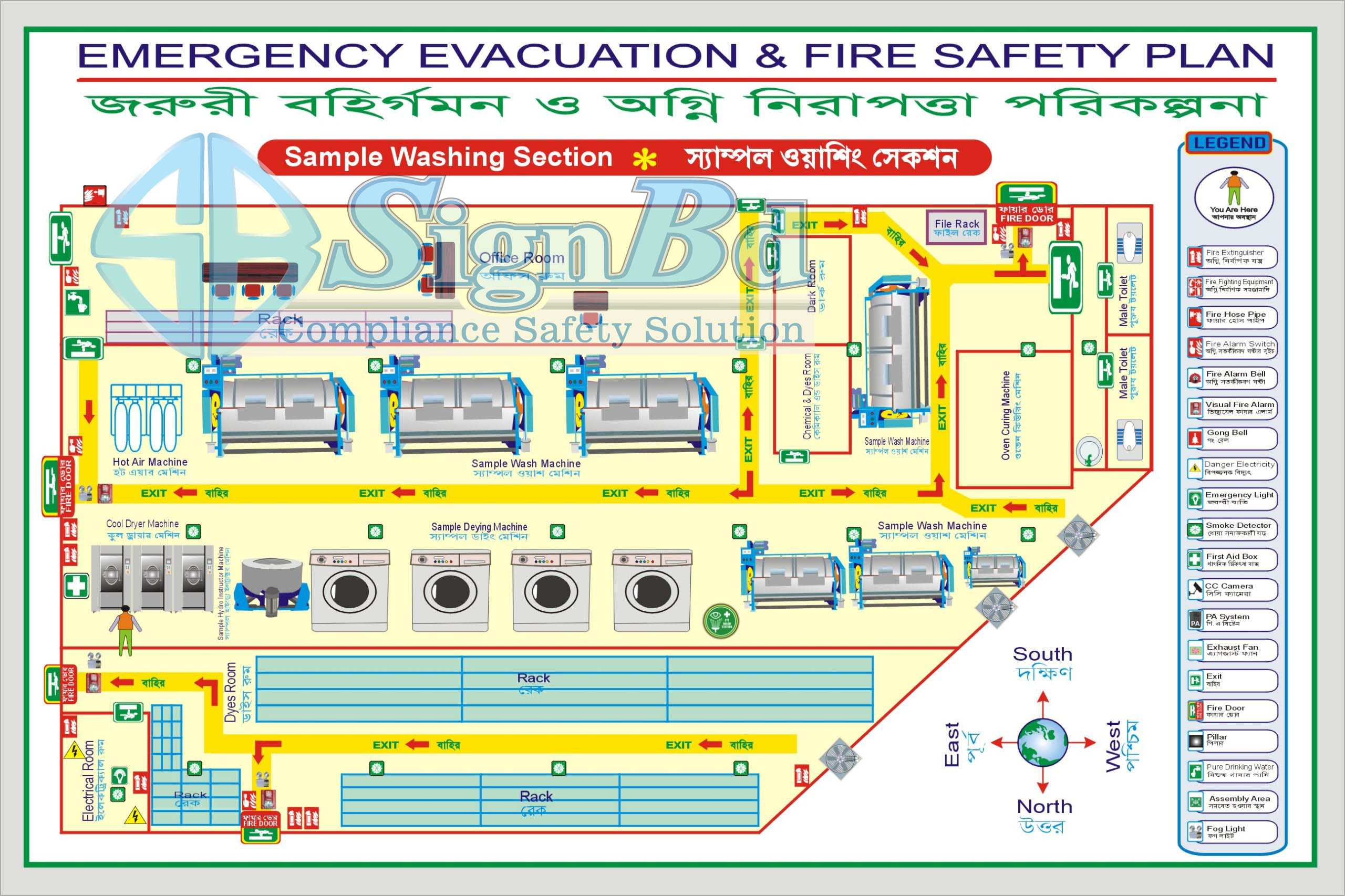

Compliance-Related Custom Sign Design
In ensuring safety and compliance in various industries, having the right signage is crucial.
SignBd specializes in compliance-related safety signs, risk assessments, flow charts, operating procedures, policies, MSDS, fire safety evacuation floor plans (drawing designs), fire safety signs.
Compliance-related safety signs, and chemical safety signs are custom designed.
We have completed expertise in Garment Factories, Green Factories, Textile and Shoe Factories, Pharmaceutical Companies, Washing Factories, Foods, Dyeing Factories, Dyeing Finishing, Tannery and ETP industries.
US and European buyers are active in these industries.
SignBd is experienced in custom sign design according to Fire Safety Evacuation Floor Plan category.
Our expertise spans since 2006.
Wherever you are? Share your plan with us. Our team is always ready to serve you.
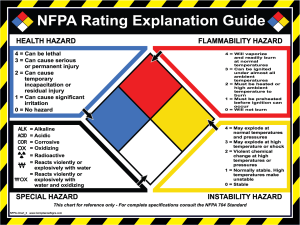
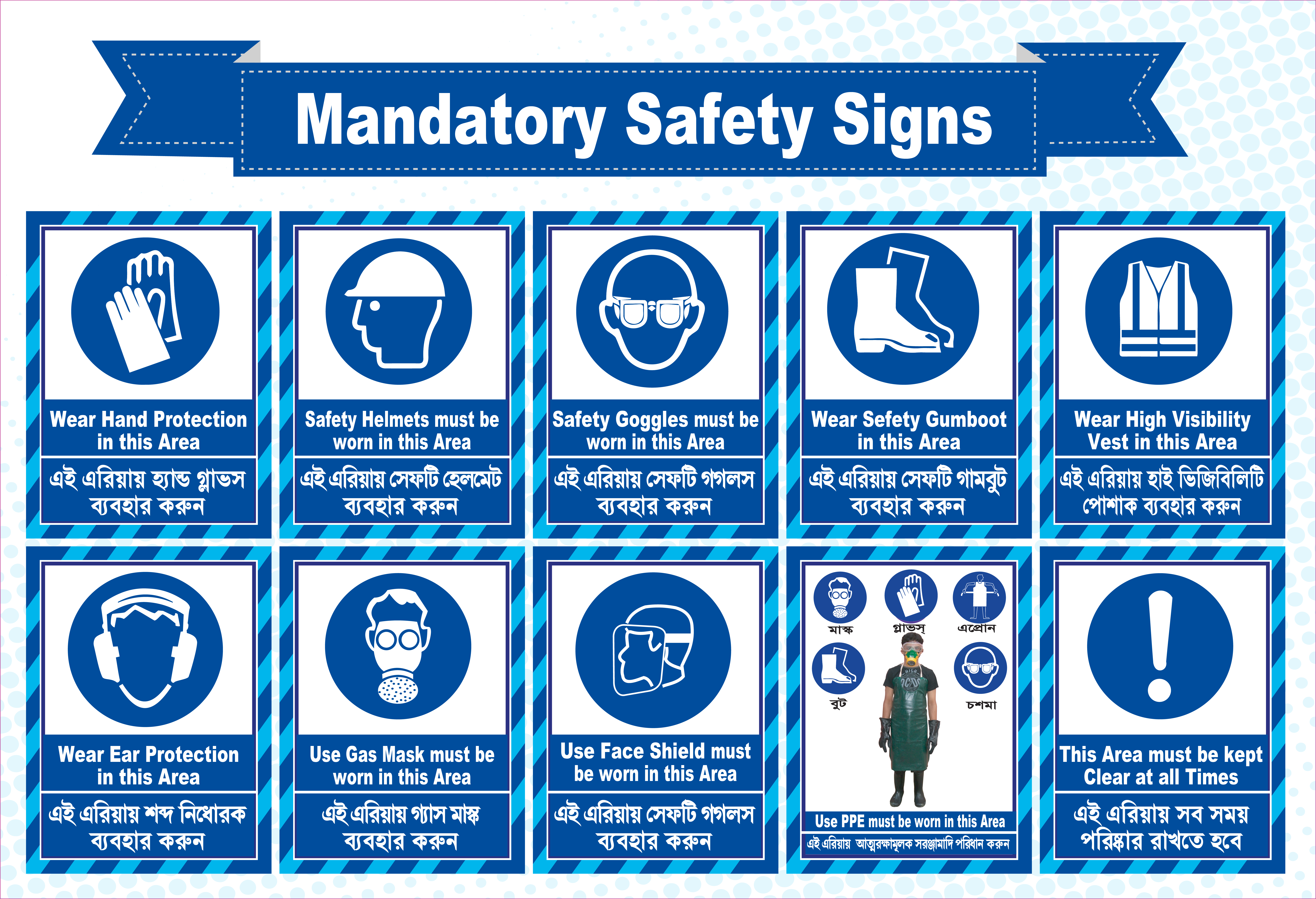

Gate in Touch:
Copyright © 2006 | Powered by signbd
